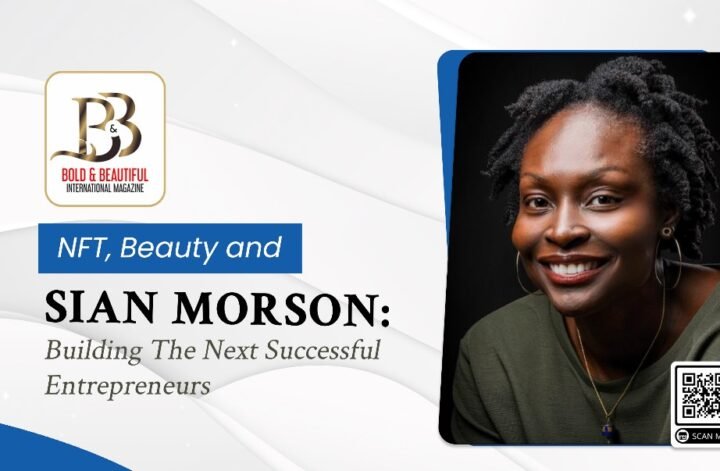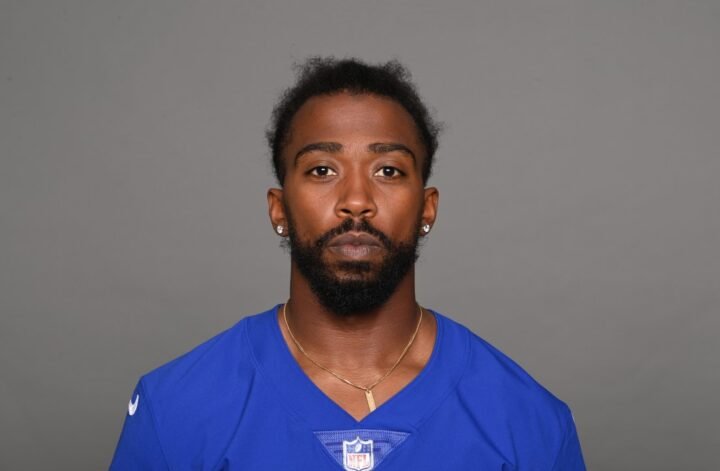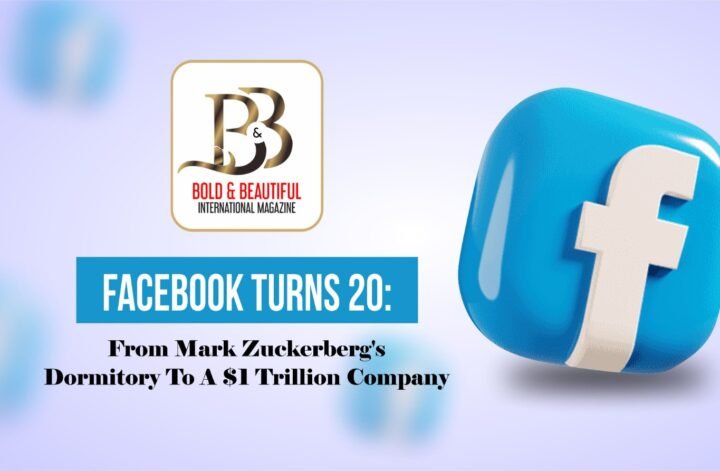“When you have big dreams about how to serve other people, it can really be exciting.
But when you have dreams about how to advance yourself, it can be frustrating because you start dreaming small.
And I want young people to know that once you have brains, you have flexibility.” – Ngozi Okonjo-Iweala (GCON)

According to the African belief system, the name given to a child has a way of ushering and preceding his or her future. Parents therefore put their experiences and the foreseeable future of a child into his or her name. Ngozi which means blessing, is her name and indeed her life and rise has been a blessing not just to her family, but to her nationalities, continent and the world at large.
Ngozi Okonjo-Iweala herself believes this name in conjunction with timing, upbringing and divine intervention are some of the key elements in her historical rising. She believes if not for God’s supernatural involvement in life, some of the situations and experiences she’s had would have ended her. But how much of faith was involved in the making of this magnificent woman with intimidating profile?
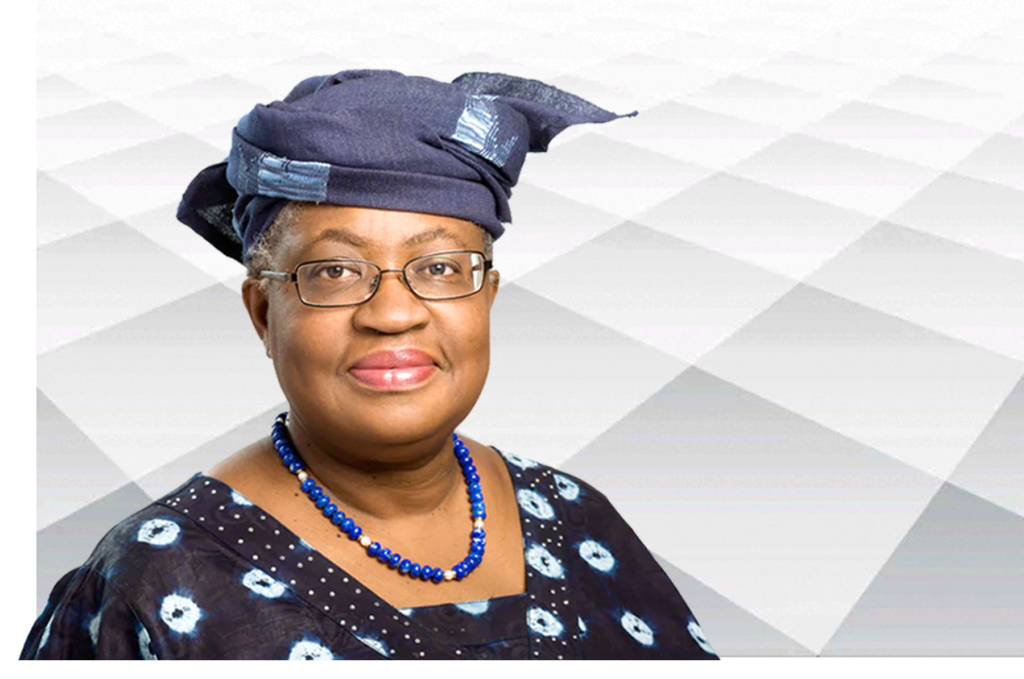
The first woman to serve twice as Nigeria’s Finance Minister, Dr Ngozi Okonjo-Iweala (from 2003-2006, 2011-2015) is Chair of the Board of Gavi, the Global Alliance for Vaccines and Immunisation, which has immunised 580 million children globally and saved 8 million lives since its creation in 2000. She is also Senior Adviser at Lazard, one of the world’s premier financial advisory and asset management firms.
With a 25- year career at the World Bank as a development economist, rising to the No.2 position of Managing Director, overseeing an $81 billion operational portfolio in Africa, South Asia, Europe and Central Asia, and then becoming the first woman and African to lead the World Trade Organisation, WTO since March 2021, Dr Okonjo-Iweala has been ranked by Fortune as one of the 50 Greatest World Leaders in 2015, by Forbes as one of the Top 100 Most Powerful Women in the World consecutively for four years, by Time as one of the Top 100 Most Influential People in the World in 2014, and by the UK Guardian as one of the Top 100 Women in the World in 2011.

She sits on boards of: Danone, Standard Chartered Bank, MINDS: Mandela Institute for Development Studies, Carnegie Endowment for International Peace, Georgetown Institute for Women, Peace and Security, One Campaign, Rockefeller Foundation, R4D: Results for Development, ARC: African Risk Capacity and Earthshot Prize plus others She also previously sat on the Twitter Board of Directors, and stepped down in February, 2021 in connection with her appointment as Director General of the World Trade Organization.
A Nigerian-American, Okonjo-Iweala serves Brookings Institution as a non-resident distinguished fellow with the Africa Growth Initiative in their Global Economy and Development Program. She is a Commissioner Emeritus and Co-Chair of Global Commission on the Economy and Climate.

Dr Okonjo-Iweala holds a Bachelors in Economics from Harvard University and a PhD in Regional Economics and Development from the Massachusetts Institute of Technology. She has received honorary degrees from over a dozen universities, including Yale, Brown, the University of Pennsylvania, and Trinity College, Dublin. She is the author of numerous articles on finance and development, and several books including Reforming the Unreformable: Lessons from Nigeria, published by the MIT Press.
First of seven children, Okonjo-Iweala was born in 1954, in Ogwashi-Uku, Delta State, Nigeria, into a royal family. Her father Chukwuka Okonjo, who was a brigadier in the Biafran Army and the head of the Biafran Organization of Freedom Fighters, served as the Eze (King) of the Obahai Royal Family of Ogwashi-Ukwu. He was a renowned mathematician and a professor of economics, while her mother was a professor of sociology and a retired medical doctor. She spent part of her childhood in her idyllic village, where she began to develop the worldview that would later be a major factor in her success:
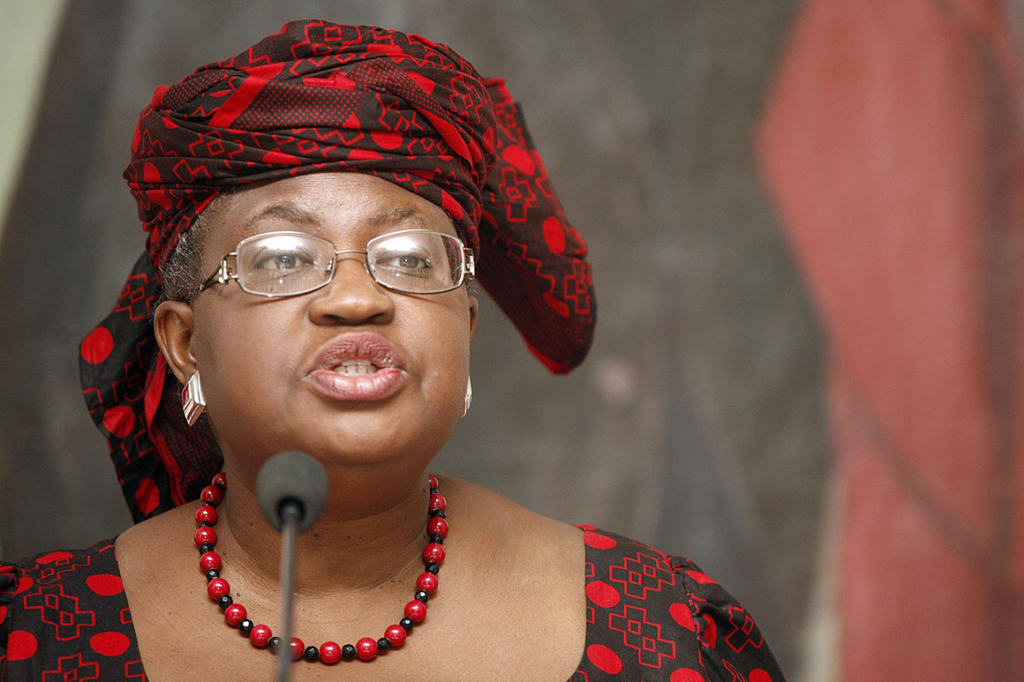
“…within the family, I was always told you have to do this for your siblings to be served. Then in my community, even though we are from the royal family, my grandmother was very down to earth and would ensure that I would go to the stream to fetch water, go to the farm and by the time I was 9, I knew how to cook.”
‘once you have a head on your shoulders, you have everything. Whatever material thing you lose, it doesn’t matter, you can recreate it. You can use your brains to find another opportunity.’ That taught me that it is not about riches. And if it includes serving other people, that makes it worthwhile,’ 15-year-old Ngozi learnt from her father.

“My parents brought us up to believe that whatever we have, it is not just for you, it is for others. That was drummed into my head. For instance, if you get educated, it has to serve the greater good. It is a privilege and not a right. So, that really shaped my thinking: Service to others.”
And she eventually became an adult serving humanity and enjoying the fruit of the seeds of her service. As Managing Director, she oversaw initiatives to assist low-income countries, raising about $50bn in 2010 from donors for the International Development Association (IDA), the World Bank’s fund for the poorest countries. Besides this, she handled the $81 billion operational portfolios in Africa, South Asia, Europe and Central Asia.

Then in Nigeria, she served as the country’s finance minister in the Presidents Olusegun Obasanjo and Goodluck Jonathan administrations, helping to secure Nigeria an $18 billion debt write-off in 2005. She was also the country’s foreign minister at a time, making her the first woman to hold both posts.
With four growing children, Ngozi Okonjo-Iweala has risen to become an inspiration to women and girl-children around the world and she has never been economical with her interest to see women in trade, small and medium enterprises:
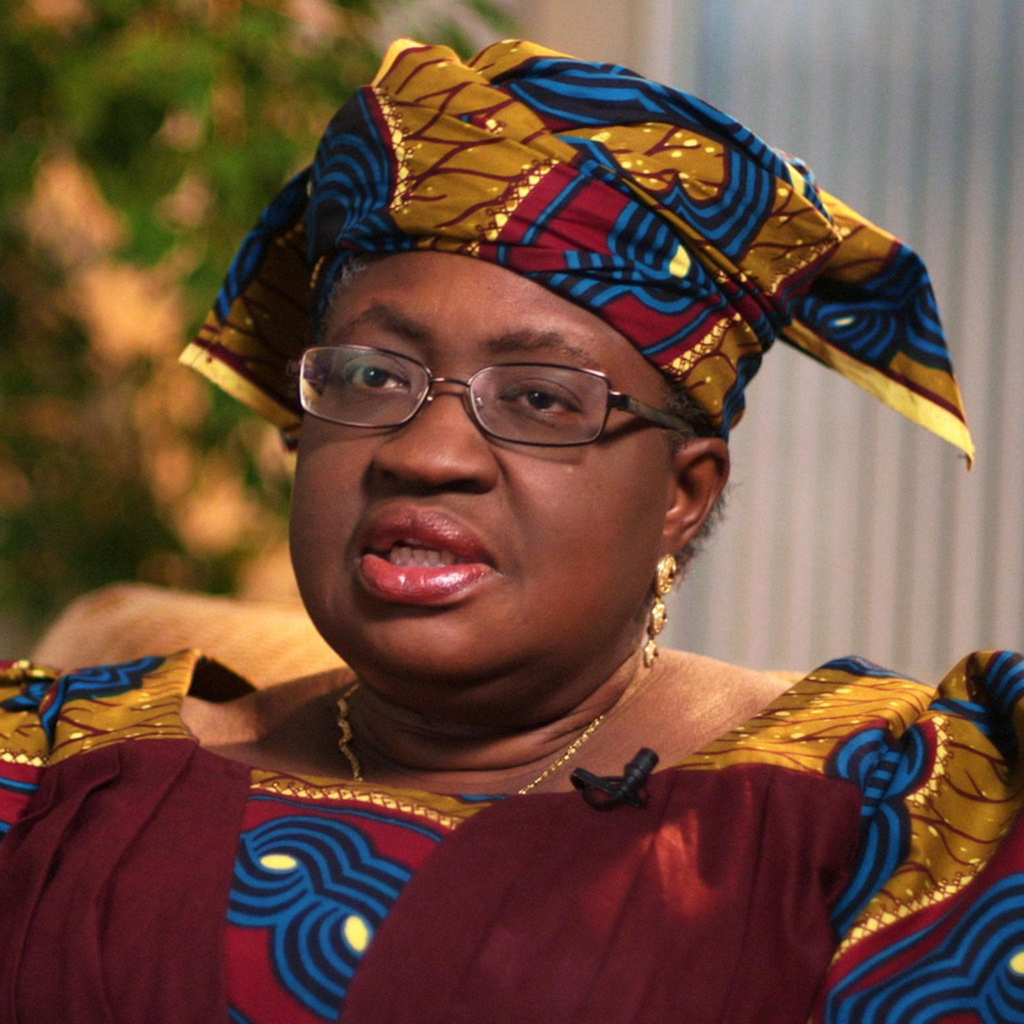
“…for women…how do we use the vehicle of trade and the WTO’s rules to help within a polity? You know, where people are falling behind those who are marginalised, inclusion; so that motivates me because I can see possibilities at the aggregate level of policy, globally, and also down to the individual.”
With her signature head-gear, glasses and Igbo traditional Ankara, Dr. Ngozi Okonjo-Iweala has become an identity of inspiration and a moving story.


[wonderplugin_pdf src=”https://boldbeautifulmag.com/wp-content/uploads/2022/12/OKONJO.pdf” width=”100%” height=”600px” style=”border:0;”]
.
Joseph Omoniyi


